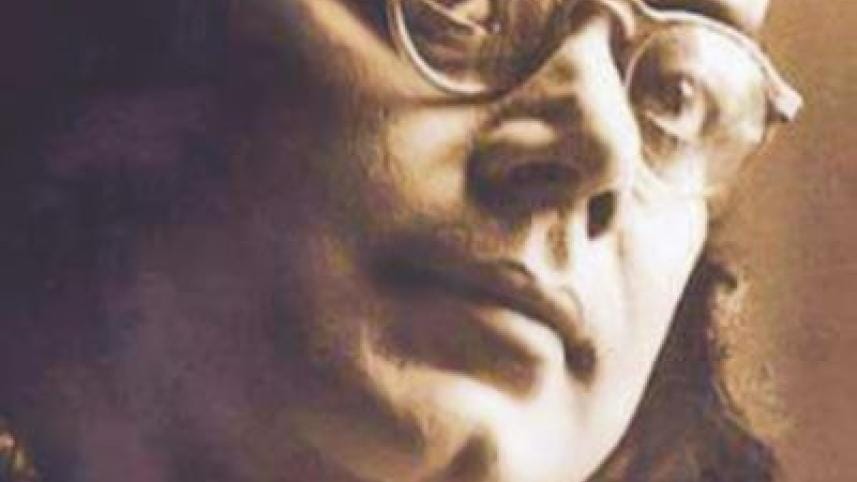Nazrul's death anniversary today

The 40th death anniversary of National Poet Kazi Nazrul Islam will be observed today.
Nazrul, who enriched Bangla literature with his genius, breathed his last in Dhaka on 12th Bhadro of Bangla calendar year 1383 (August 29, 1976) at the age of 77. He was buried with full state honours beside the Dhaka University Central Mosque.
Different government institutions and cultural organisations will hold discussions, seminars and cultural programmes today to commemorate the rebel poet's death anniversary.
State-run and private television channels will also air special programmes.
Composer and lyricist of about 4,000 songs, which are known as Nazrul Geeti, his literary talent is also evident in his poems, essays and novels.
Known as the Rebel Poet, Nazrul explored a synthesis of different forces in a rebellion, expressing rage as well as beauty and sensitivity.
He was born on May 24, 1899 (11th Jaishthya, 1306) in Churulia village under Asansol of Burdwan in India's West Bengal.
In his childhood, Nazrul joined a folk theatrical group and began composing poems and songs. When he was in class 10, he joined the British Indian Army in 1917. Even as a soldier, he continued his literary work, publishing his first piece Baunduler Atmokahini (The Autobiography of a Vagabond) in the May 1919 issue of Saogat and his first poem Mukti (Freedom) in Bangiya Musalman Sahitya Patrika in July 1919.
When the 49th Bengal Regiment was disbanded after World War I in 1920, Nazrul returned to Calcutta to begin his journalistic and literary life. His fiery editorials in the daily Nabayug aroused the suspicion of the British Raj as being seditious.
His most celebrated poem Bidrohi (The rebel) was published in 1922, which shook up the British colonial rulers, putting his literary career on a strong footing.
One of his political poems, Anondomoyeer Agomone, published in Dhumketu in September 1922, had led to a police raid on the magazine's office and his sentencing for one year's rigorous imprisonment. He was released from prison in December 1923.
In April 1924, Nazrul married Pramila Devi. From 1928 to 1932, he became directly involved with the His Master's Voice Gramophone Company as a lyricist, composer and trainer. A good number of records of his songs, sung by some of the most well-known singers of the time, were produced during that period.
In July 1942, Nazrul was struck by a debilitating disease and was incapacitated. He gradually lost his speech and remained silent till his death.
After the liberation of Bangladesh, Nazrul, at the request of the Bangladesh government, moved to Bangladesh on 24 May, 1972 with his family to reside here permanently.
In 1974, Dhaka University awarded him an Honorary Doctorate of Letters (D.Litt). In 1976 the Bangladesh government awarded him the Ekushey Padak, the top civilian award of the country.
 For all latest news, follow The Daily Star's Google News channel.
For all latest news, follow The Daily Star's Google News channel.
Comments